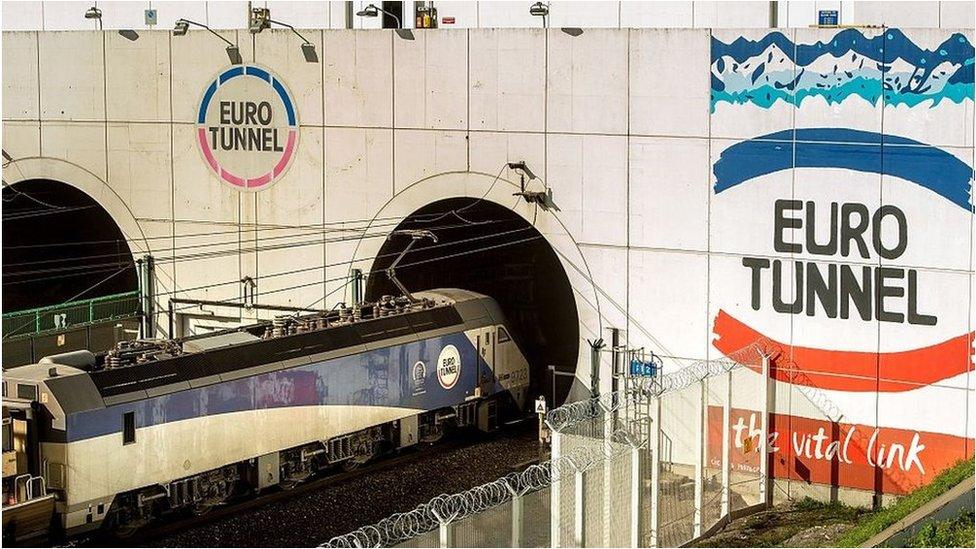Brexit: Dover-Calais route 'will work well on 1 January'
- Published

The operators of one of the crucial Dover to Calais routes has insisted the recent chaos with thousands of lorries stranded in Kent will be avoided when new trading rules begin later tonight.
"I'm confident that it will work well on 1 January," John Keefe, director at Channel Tunnel operator Getlink, said.
But one logistics firm said it would not send any trucks across until 10 January due to congestion fears.
And the government has said it expects "some disruption" due to the changes.
Hauliers in Britain taking goods to the EU and Northern Ireland will need new paperwork from 23.00 GMT tonight as the UK's new trading relationship with Europe begins.
The government warned those without correct documentation would be stopped.
"To minimise disruption, hauliers without the correct documentation in place should not move goods across the EU border from 1 January as they will be stopped and their goods held."
Rob Hollyman, the director of Youngs Transport and Logistics, based in Purfleet in Essex said he would not run any of its lorries in the first week of January.
"I can't afford to have my vehicles delayed.
"We didn't think that the risk of joining a queue that was two miles long in either direction was a risk worth taking. I'll see how it pans out the first week and maybe get our vehicles across the following week," he said.
The Road Haulage Association (RHA) has also warned that "customs formalities" and regulatory checks mean that there are likely to be "teething problems" as the new arrangements are brought in.

The basics
A Brexit deal has been agreed, days before a deadline. It means that the UK and the EU can continue to trade without extra taxes being put on goods.
What took so long? The UK voted to leave the EU in 2016 and actually left on 31 January 2020, but leaders had until the end of 2020 to work out a trade deal.
There are big changes ahead. Although it's a trade deal that has been agreed, there will also be changes to how people travel between the EU and UK, and to the way they live and work.

But Mr Keefe said a combination of factors including lower-than-normal traffic volumes due in part to factories shutting for a longer Christmas break, a temporary suspension of most customs checks and preparation for the new rules should keep traffic moving.
"Things will start slowly. 1 January will be a quiet Bank Holiday after New Year's Eve. I don't think traffic will build up until late in the first or second week of January."
"This initial quiet period will allow everyone to prepare."
Mr Keefe said its new systems had been in place since March 2019 when the UK was initially expected to leave the EU, giving it time to test and refine the checks required.
"I'm pretty confident this will work," he said.

